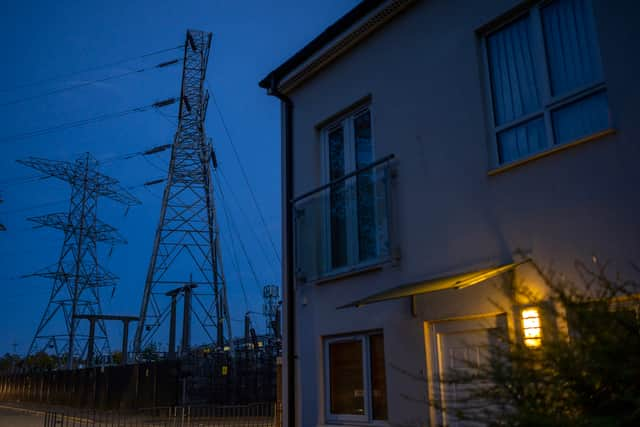Households will save up to £400 on energy bills as new support scheme launched - check if you’re eligible
and live on Freeview channel 276
Thousands of households are set to receive help slashing their energy bills as a new Government scheme launches this week. The British Insulation Scheme will see £1billion spent on grants for homes that have low energy efficiency ratings and are in lower council tax bands as winter approaches.
The scheme will run until March 2026 and includes upgrades such as roof, loft and cavity wall insulation. The Goverment said it could cut energy costs for some households by between £300 and £400 a year.
Advertisement
Hide AdAdvertisement
Hide AdEnergy security secretary Claire Coutinho said the Government was “determined to help families keep their homes warm through the winter months and save on their energy costs”. She added: “Our Great British Insulation Scheme will help hundreds of thousands of people, including some of the most vulnerable in society, get the upgrades their homes need while cutting their energy bills.”
Who is eligible for the scheme and how to apply
To be eligible for the British Insulation Scheme, your home needs to be in the Council Tax bands A to D if your home is in England, or in bands A to E if in Scotland or Wales. Your home must also have an Energy Performance Certificate rating of D or below.
Households can check if they are eligible using an online tracker. The tool, which went live on Thursday (September 14) will ask a series of questions including how you heat your home, whether your home has solid or cavity walls and if you are receiving any benefits.
Customers will then be referred to either their energy supplier or council to take the next step. The new scheme will run alongside the existing Energy Company Obligation (ECO) scheme, which provides free home energy efficiency improvements, such as insulation, heat pumps and solar panels for low-income households.
Advertisement
Hide AdAdvertisement
Hide AdA separate checker has also been launched for the Home Upgrade Grant. This scheme again provides energy efficiency upgrades to homes in England that have an EPC rating of D to G and are not on the main gas grid. Upgrades under this scheme again include wall, loft and underfloor insulation, installation of heat pumps, solar panels, double glazing, low energy lighting and electric storage heaters.
The Home Upgrade Grant is only available to certain postcodes and you need to apply through your local council.


Energy bills could be ‘higher than last year’ this winter
Speaking befrore the Energy Security and Net Zero Committee this week, Ofgem’s chief executive Jonathan Brearley warned energy bills could be even higher than last year after the Government’s Energy Bill Support Scheme ended in March. The scheme gave every UK household a £400 discount on their energy bills, paid in £60 monthly instalments via suppliers.
However, there are no plans to restart it this winter, despite the launch of the British Insulation Scheme. Mr Brearley told MPs: “There is some positive news.
Advertisement
Hide AdAdvertisement
Hide Ad“The market is more stable, it is less volatile and prices are lower than this time last year. So, this time last year, we were anticipating and seeing prices at around £4,200 a year without government support.
“Last year, the government did step in to give tens of billions of pounds of support to customers. But there is a reality for customers this year, that support is not available. So, for many people, their bills will be very similar this year and possibly worse for some, than they were last year.”
Mr Brearley added that Ofgem, the Government, the industry and consumer groups needed to be “fully focused” on the needs of customers, particurly the most vulnerable, in the run-up to winter.
